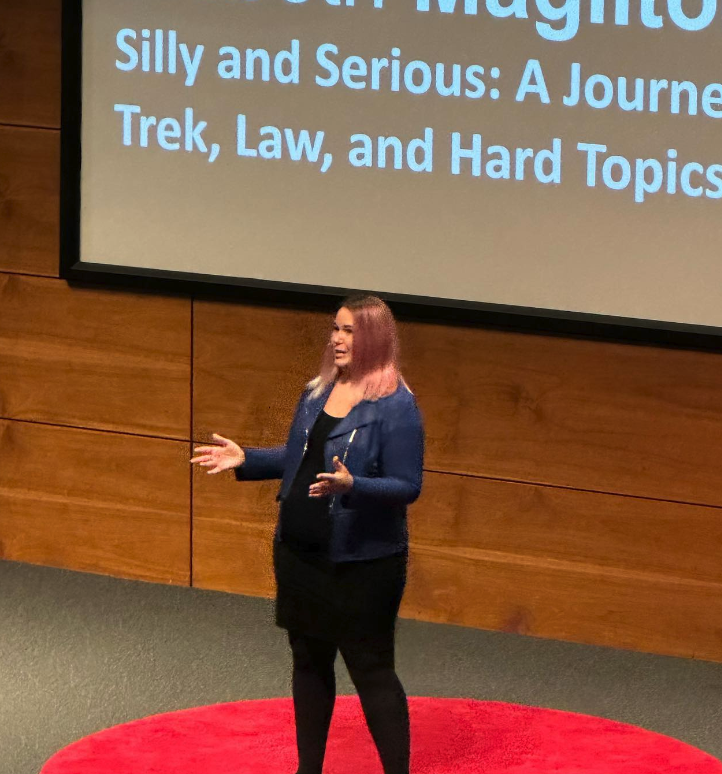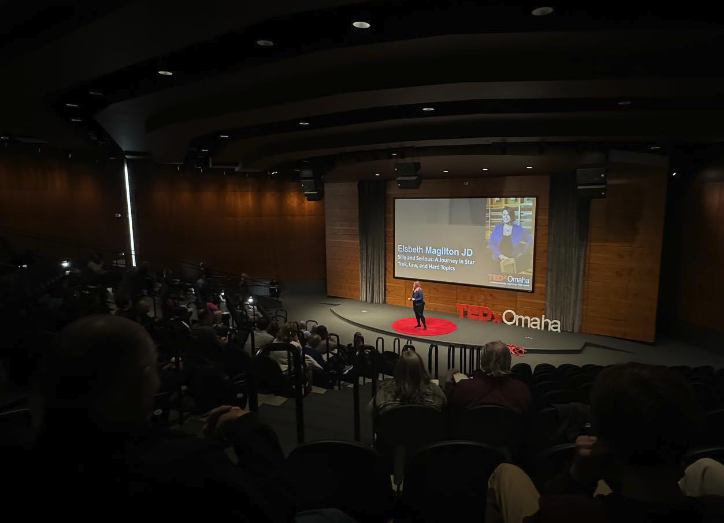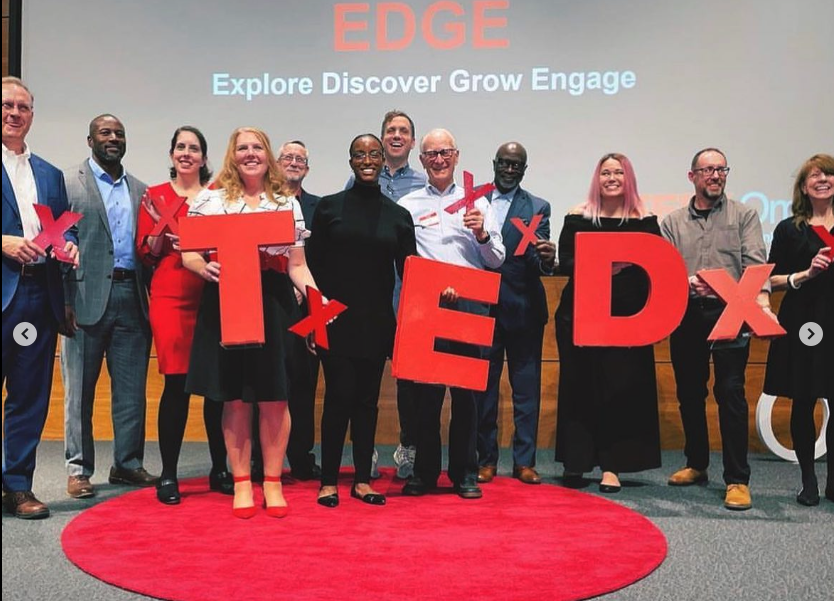So, I’m actually not a bad guy – at least not in the stories in my head – but if you lead, teach, or practice law you will always been someone’s bad guy. Someone’s professor who didn’t care enough. Someone’s boss who asks too much or offends them. Someone’s attorney (or opposing counsel) who ruined your life.
When you step into any measure of control or authority, you will eventually be the villain in a story someone is telling their friends and family.
…and that sucks. I just want to be really clear here, this sucks. I don’t want to be someone’s villain! I care so deeply about what I do. I want our students to all feel challenged while also being supported. I want them to understand and follow procedures, while getting curious about why things work they do, and challenging the status quo. Recently another leader I work with, in a much higher position than mine, faced some pretty searing criticism of their leadership. They were sincerely impacted and hurt by anonymous words in a survey.
Of course, of course, feedback is the currency of academia and valid feedback should be internalized and reflected upon. However, sometimes, no matter how much you care or try – you’re a villain. I have faced decisions on issues that were deeply important to the people I serve. Often, even if I don’t regret the decision and would make it again, I feel awful that someone out there is angry. I had to say “no” to something a someone thought they were entitled to, do my job, and now I’m loathed. I’m their bad guy. How can we cope with that?
First, we can forgive or re-think all our own former bad guys. That professor who refused to waive the deadline? That middle-manager who wouldn’t let you park where you wanted? I’m not saying forgive them, but maybe re-think them. There were rules and procedures throughout my education I railed against. Some of my rage was valid (fuck off high school dress code). Some of it, though, I just didn’t understand. I made the self-centered assumption it was in place simply to punish me. I wasn’t curious enough to ask “why?” in an open way. Sure, those leaders could’ve communicated their “why” a little better, but I can own my part in their becoming my bad guy. I can show empathy I didn’t have then.
Second, I can hold my “why” a little closer. Why did I make that decision, set that boundary, hold that level of accountability? Usually its because I know the world outside of the college will be even harsher, and not even tell you how you’re screwing up. I may still become a student’s villain – but my why is more important. I’m here to prepare future attorneys, and doing them favors that judges, co-counsel, opposing counsel, partners, and CEOs won’t do, doesn’t prepare them for much.
Third, I can have language ready so that when I’m transforming into someone’s bad guy, I still act in a way I’m proud of. This happens when I know I need to hold a boundary, and I know its going to make me sound like a bitch, but I can at least sound like a smart and calm bitch.
For example, frequently students will send me an email that asks me something that is covered in the syllabus or elsewhere. Sometimes these are as simple as what time class is, the room number, or something else that is available on the college’s schedule and in the Dean’s Office. These emails really get to me. Why? Don’t give other people work because you didn’t take a moment to really ask yourself. Before you send an email, look for yourself. You’ll save everyone time. I also suspect senior male faculty get fewer of these hand-holding requests, but I digress. In most environments, if a junior person sends this kind of email to a senior person two things happen: (1) its ignored and goes unanswered or (2) they answer, but are frustrated. Either outcome diminishes the professional relationship. So, here is my sample reply to these emails…
“I am always happy to answer questions, but I do request some shared problem-solving effort. I covered this information in orientation or its available at XYZ, etc…”
I don’t usually provide the information. Please don’t read this as me discouraging asking questions – I definitely do not – but you have to show some effort. Tell me how you did try to find the information. How did you prepare before asking me these questions?
I have more of these canned responses for other types of interactions – the interactions that lead to the “bad guy zone.” No one wants to get that email. The email that implies: this was a stupid email, work harder. But I can rest more easily knowing that even if I’m in the bad guy zone, it’s because I was working to make them a better lawyer.
Fourth, sometimes being the bad guy is out of your control. Those are actually nice moments – this hard decision isn’t on me, even if I’m the face of it. In either instance, I try to handle it with as much empathy as possible, without slipping into validating any crappy behavior. I find simply making gentle eye contact and saying, “I know this sucks and I hear you” and keeping the, “but we really can’t change the whole college’s course schedule just for you” helps… though maybe sometimes they should hear the whole thing.
Fifth and finally, do a check. Were you actually cruel or mean, needlessly? If you were, make it right.
Regardless, you don’t just get over it – or at least I can’t. People pleasing is in my DNA. It sucks. I want to help everyone. I feel like a failure when I don’t help every person who asks for it to the greatest degree possible. However, I am but one woman. I can not do that. I’ve tried, I’ve cried, I’ve set boundaries on what I’m willing to do or compromise, and I’ve had to accept that some people won’t like it. They’ll say I’m not doing my job well, or supporting them enough. It hurts, but I know what I can do, and I do it.
I got the advice recently, “you can’t do more for them than they’re willing to do for themselves” and I’ve really been holding that in my mind. There are few people out there to whom I am the bad guy. In some cases I fully deserve it. In the others, I probably wasn’t intentionally trying to do them wrong, personally.
In sum, I have no actual advice with how to cope with the reality of people thinking you suck and personally wronged them. Honestly, it’s probably good if it bothers you to some degree. What I do know is that every person you know is someone else’s bad guy. Deserved or otherwise, interacting with other’s doesn’t always result in sunshine and rainbows. It’s part of the human condition – we suck sometimes.
It’s not special to be disliked, and in way, that makes it a little bit easier to swallow.










You must be logged in to post a comment.